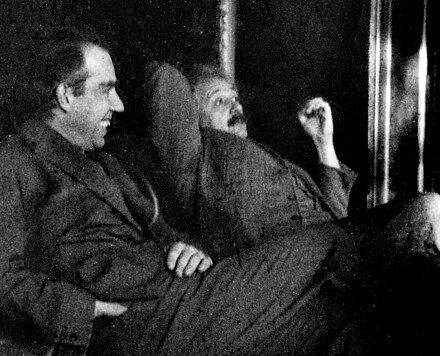Skills And Abilities Are Not Enough. Determination Prevails.
By Eli Amdur
A story that bears retelling
Seventy-one years ago today – June 2, 1953 – Queen Elizabeth II was coronated. Although she ascended to the throne on February 2, 1952, upon the death of her father, George VI, the pomp and circumstance was put off in deference to an appropriate time of mourning.
To help glorify the coronation, two men stepped foot on the summit of Mount Everest, the world’s highest mountain. Sir Edmund Hillary and Tenzing Norgay made the kind of history reserved for very special people. They reached Everest’s peak on May 23, 1953, planned so that they could descend and be honored on Elizabeth’s big day – for the glory of Great Britain, of course.
Many of us – but a shrinking number, I concede – recognize Sir Edmund Hillary as the first man known to do it, but he didn’t do it alone. Norgay, a native Nepalese, was his Sherpa, and deserves equal credit for the feat. In fact, only because the expedition was headed by an Englishman, John Hunt, was Norgay expected to step aside in order for Hillary, a New Zealander and subject of the Queen of England, to become the first human to take the last step on the climb to the top. It was never doubted that Norgay was as capable and experienced a climber as Hillary (if not more) and was every bit as responsible for the success as was Hillary, but that’s an issue for moral historians to kick around.
This story has a very interesting – and eternal – lesson, though, and it’s best summed up by something Hillary himself said, which I’ll quote later.
But first, let’s look at a most interesting historic event which did NOT take place just three days earlier. On May 26, 1953, Tom Bourdillon and Charles Evans, the lead climbing pair in the expedition headed by Hunt, were supposed to be the first two humans to ascend Everest, but due to exhaustion, they turned and descended, never attaining the peak. They had come within 100 meters – and turned back! Imagine that. Just one hundred meters, merely the length of a soccer field, after already climbing 8,748 meters.
Three days later, Hillary and Norgay, did what Bourdillon and Evans could not. They reached
the top. They accomplished their goal.
What did two men have that two others didn’t?
Norgay and Hillary reached down deep for something Bourdillon and Evans couldn’t find. The climb was the same distance for each pair; there are no indications that one pair was more skilled than the other; the weather conditions, according to reports, did not vary; and supplies and provisions were the same. So why were the results different? Determination.
For whatever reasons, Bourdillon and Evans saw the summit of Everest as unreachable. And they quit. I cannot help but think there was something else, however. After climbing 99 percent of the way, the ascent should have happened. No, I think it was more than exhaustion. I think it was lack of determination.
Why do I say that? Surely I didn’t know these men, haven’t done scholarly research on this, and was only six years old when it all happened. But something Hillary said in explaining their success draws me to my assumption. When, at a press conference, Hillary was asked why he and Norgay conquered the mountain while the others didn’t, he responded,
“It is not the mountain we conquer, but ourselves.”
News of the expedition’s success reached London on the morning of Queen Elizabeth II’s coronation. Hunt and Hillary were knighted in the Order of the British Empire (KBE). Tenzing, a subject of the King of Nepal, was granted the George Medal by the UK.
Bourdillon and Evans? Bourdillon died three years later, at the age of 32, in a climbing accident in Switzerland. Evans spent his life as an educator in Wales and died in 1995 at the age of 78. Neither was honored for his efforts, although they had ascended to a point that no other human ever had before. It just wasn’t enough.
It’s not the recognition gained by Hillary and Norgay – or the recognition that Bourdillon and Evans will never get – that matters. It’s reaching the goal that matters. It’s refusing to give up that matters. It’s determination triumphing over exhaustion that matters. It’s conquering ourselves that matters.
It’s all about conquering ourselves.
A historical postscript
After Everest, Hillary climbed ten other Himalayan peaks and was a member of the first overland expedition (1958) to reach the South Pole since Amundsen in 1911 and Scott in 1912, and the first ever to do it with motor vehicles.
Once you’ve determined to do something – against any odds – success becomes the only option.
And then it becomes a habit.


